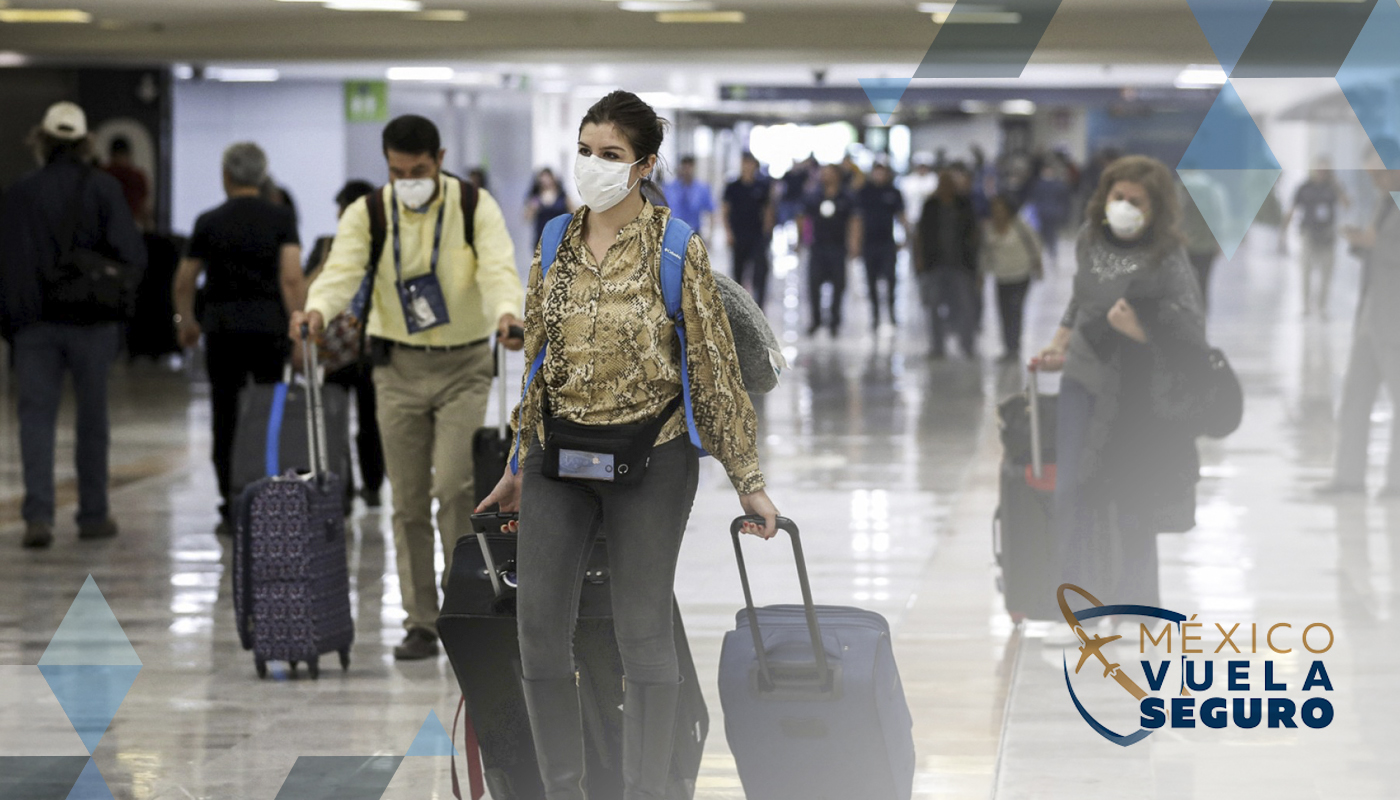The initiative aims to encourage the use of air transport and support the reactivation of tourism.
The Federal Civil Aviation Agency (AFAC) and the Ministry of Communications and Transportation (SCT) started the national initiative “Mexico Vuela Seguro”, which together with the authorities of Tourism, Health, as well as airlines and airports, intend regain the confidence of the passenger, encourage the use of this means of transport and support the reactivation of tourism.
From now on, air transport users can access the portal vuelaseguro.com to answer the Questionnaire for Identification of Risk Factors in Travelers in order to collect data on the health of users and maintain safety in the industry.
Last November 27, the AFAC issued a Mandatory Circular outlining a “Civil Aviation Emergency Plan for Events of Public Health Importance”, in order to maintain security conditions regarding the operation of the air terminals and contribute to the continuity and sustainability of air transport.
Today “Mexico Flies Safe” aims to standardize measurements and procedures with other actors in the airline industry, regain the confidence of the traveler and encourage strategic routes to detonate the economic recovery caused by the health emergency caused by covid-19.
Within the site, passengers will receive messages where they will be reminded to fill out the questionnaire before checking in online, people who do not meet the requirement will not be able to fly. Additionally, the application will ask users to notify their health status three days after boarding a flight.
As of February 16, this questionnaire will replace the QR code that the authorities had previously implemented, becoming the only one required by the authorities prior to the flight.
Through the application, passengers will be able to obtain flight information, consult the airport sketch, access a general directory and answer customer satisfaction surveys. The application for mobile devices is expected to be launched on February 15, 2021It is still necessary to sign agreements with airlines, airports and health authorities.
It is planned to use a Compliance Platform, through which the monitoring and evaluation of the measures can be carried out, control health risks in real time, regular trips, assist users, manage emergency plans, and verify information from space saturation sensors and thermo-detection.
Until now the Pacific and North Central airport groups have already begun to adopt it.
–

